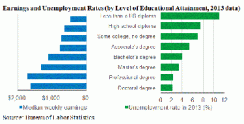We at BlackRock have long contended that there is a certain irony to the fact that residential housing, the sector that helped undo the U.S. economy, is now one of the keys to a sustained recovery. Indeed, housing data have softened in recent months, to the extent that they garnered special mention in U.S. Federal Reserve chair Janet Yellen’s May 7 address to Congress. Specifically, Yellen noted that “readings on housing activity, a sector that has been recovering since 2011, have remained disappointing so far this year and will bear watching.” These data will require close scrutiny, as employment related to the real estate sector — and the many functions surrounding it — accounted for a tremendous amount of the net hiring during the past decade and offers perhaps the best chance for tightening slack in the labor market.
Some market observers have recently argued, however, that homeownership rates are in the midst of a secular decline that could weigh on housing markets for decades. Veteran real estate investor Sam Zell of Chicago–based Equity Group Investments has suggested that the U.S. homeownership rate may fall to as low as 55 percent, a full ten percentage points below the present level. We are not so pessimistic on the prospects for residential housing in the years ahead, as market fundamentals and technical factors still appear favorable to us. But we share the concern over deep financial pressures facing potential first-time home buyers.
One underappreciated yet vital headwind to many young workers’ ability to purchase a home is the significant student loan debts many incur early in life. That dynamic is a catch-22: Whereas a college graduate is likely to see 1.8 times the lifetime earnings of a worker who did not complete postsecondary education, if that graduate has incurred a significant level of student loan debt to complete his or her studies, it diminishes much of that economic advantage.
Additionally, younger workers face a set of mounting economic pressures, from higher-than-average rates of unemployment — for example, just above 10 percent for those 20 to 24 — to stagnant wages and lower rates of labor market participation. Without question, educational attainment on average pays considerable dividends over the course of a worker’s career (see chart 1). But excessive levels of student indebtedness have begun to challenge this truism. Not only does this debt weigh on many young workers’ financial prospects, but it is also a headwind to housing market recovery and, more broadly, economic expansion.

The key to this dilemma is that significant student loan debt lowers the average savings rate for young workers in their first decade out of school and, consequently, delays the timing of their home purchase by five to ten years and in turn leads to a significantly negative effect on their potential net worth. Although many may have personal experience with balancing student loan debt and building a nest egg, when looking at aggregate data, we can begin to see the problem’s magnitude on the macroeconomic level.
At present, nearly 39 million Americans have outstanding student loan debt. The average balance on student loans is $27,000, amounting to more than $1 trillion in total obligations. Roughly two thirds of this debt is held by consumers ages 25 to 39, a demographic that has large overlap with the first-time home buyer market segment. Thus, as these young workers slowly save for a down payment at the same time they are paying back their student debt, their purchase delay results in years of missed asset price appreciation potential. Since home equity represents one of the largest assets for most U.S. families, it also implies lower potential net worth when approaching retirement.
From a macroeconomic standpoint, why would weakness in first-time home purchase be of such a concern as to take Yellen’s notice? The reason is that residential construction, while only a modest contributor to growth on an aggregate level, creates significant multiplier effects at economic inflection points and has often driven recovery.
Indeed, if we look at the cumulative change in payrolls by industry, we see that professional and business services — the sector with the largest proportion of jobs — has returned to its precrisis level. In contrast, the financial services industry appears to have plateaued at a lower level than before, as that industry has gone through restructuring since the 2008–’09 financial crisis. But it is the construction industry that remains deeply depressed compared with prior levels and, in BlackRock’s view, represents a critical sector for potential job gain (see chart 2).

How can the housing recovery be supported at this stage, given its importance to overall economic recovery? Obviously, relatively accommodative financial conditions will continue to be important, as evidenced by Yellen’s attention to this issue. We at BlackRock would suggest that fiscal policy initiatives targeted at young workers with high levels of student indebtedness might, perhaps surprisingly to some, have an outsize impact in supporting the housing recovery and financial markets.
Rick Rieder is chief investment officer of fundamental fixed income and co-head of Americas fixed income for BlackRock.
Get more on macro .






